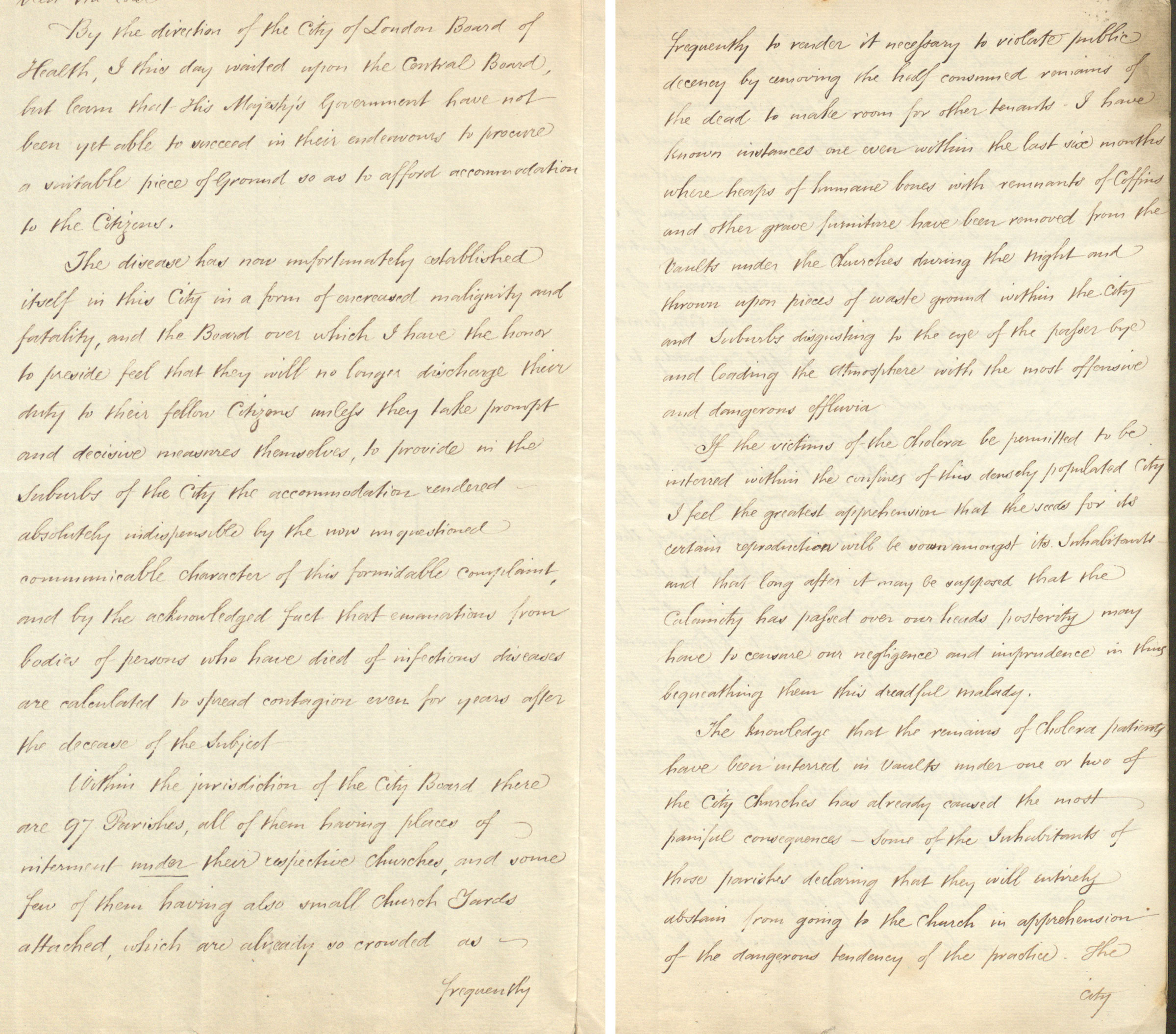
Extract from a letter from Charles Pearson, Chairman of the City of London Board of Health to Marquis of Landsdowne, Lord President of the Privy Council [group of advisors to the sovereign] concerning the need for separate burial grounds for those who had died from cholera, 16 July 1832, Catalogue ref: PC 1/114.
By the direction of the City of London Board of Health, I this day waited upon the Central Board, but learn that His Majesty’s Government have not been yet able to succeed in their endeavours to procure a suitable piece of ground so as to afford accommodation to the Citizens.
The disease has now unfortunately established itself in this city in a form of increased malignity [harm] and brutality and the Board over which I have the honour to preside feel that they will no longer discharge their duty [do their job] to their fellow citizens unless they take prompt and decisive measures themselves, to provide in the suburbs of the City the accommodation [space to bury the dead] rendered absolutely indispensable [necessary] by the now unquestioned communicable character of this formidable complaint, and by the acknowledged fact that emanations [discharges] from bodies of persons who have died of infectious diseases are calculated [believed] to spread contagion even for years after the decease the subject.
Within the jurisdiction of the City Board there are 97 parishes, all of them having places of internment [burial] under their respective churches, and some few of them having also small church yards attached, which are already so crowded as frequently to render it necessary to violate public decency by removing the half consumed remains of the dead to make room for the other tenants.
I have known instances, one even within the last six months where heaps of human bones with remnants of coffins and other grave furniture [grave stones] have been removed from the vaults under the churches during the night and thrown upon pieces of waste ground within the city and suburbs, disgusting to the eye of the passer by and loading the atmosphere with dangerous effluvia [harmful odour].
If the victims of cholera be permitted to be interred within the confines of this densely populated city, I feel the greatest apprehension that the seeds for its certain reproduction will be sown amongst its Inhabitants and that long after it may be supposed that the Calamity [disaster] has passed over our heads posterity [future generations] may have to censure [disapprove] or negligence and imprudence in thus bequeathing [passing on] them this dreadful malady.
The knowledge that remains of cholera patients have been interred [buried] in vaults under one or two of the city churches has already caused the most painful consequences- some of the inhabitants of those parishes declaring that they will entirely abstain [avoid] from going to the church in apprehension of the dangerous tendency of the practice.
The Privy Council had set up the first Board of Health in 1805 to deal with the spread of fever. This letter is included in the correspondence and papers of the Central Board of Health, which was re-called to deal with a cholera epidemic in 1831.
- Why has the chairman of the City of London Board of Health written this letter?
- What does it suggest about:
- Understanding of the cause of the disease?
- How it spread among the population?
- How people regarded it according to language and tone of the letter?
- What does the letter infer about the purpose of the Central Board and City of London Board of Health?
